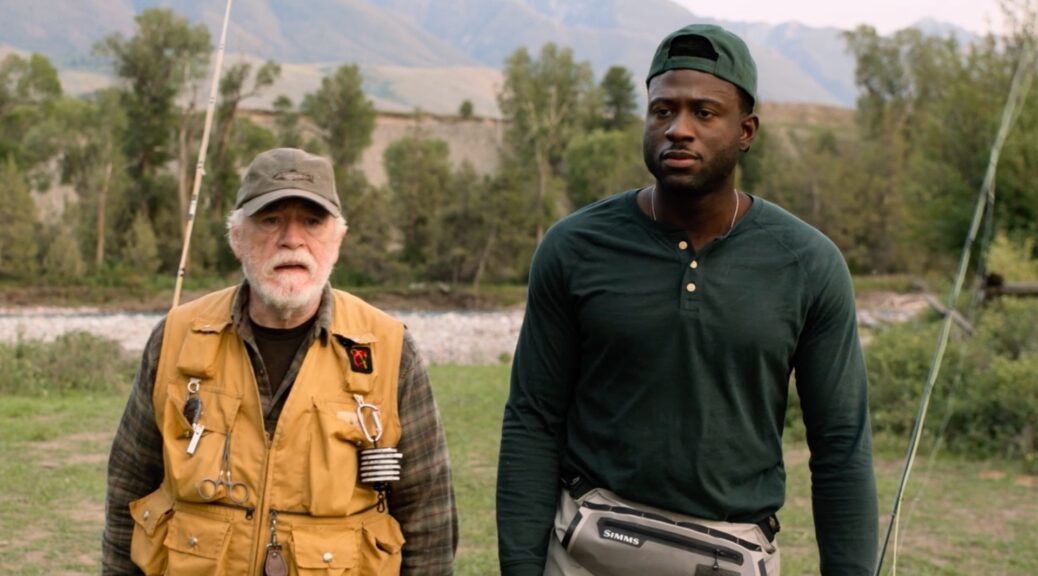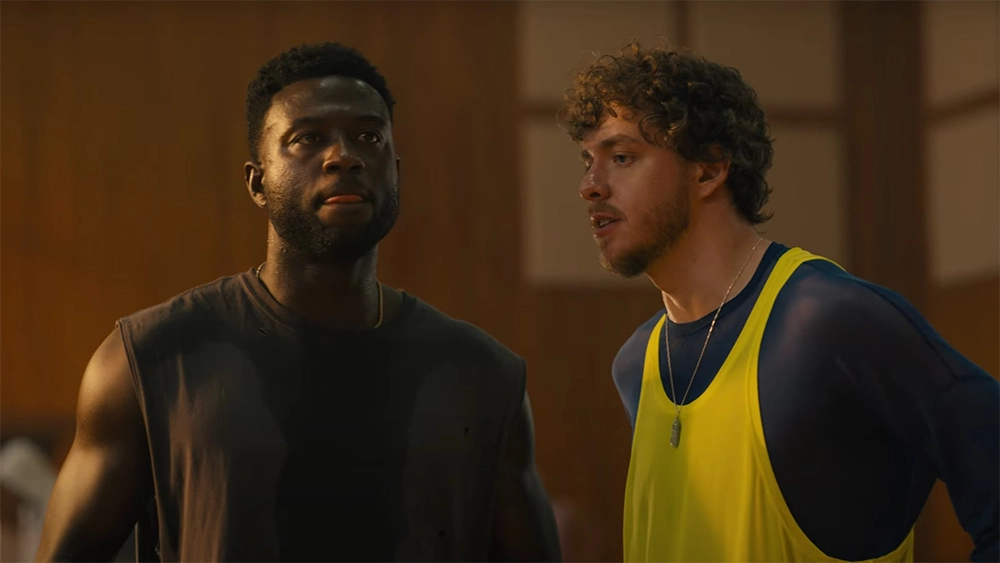The Blackening
by George Wolf
How many kids does Nick Cannon have? Think on it, because your answer could say a lot about you.
It might even keep you alive.
Several friends from college (including Jay Pharaoh, Yvonne Orji, Sinqua Walls, Antoinette Robertson, and the film’s co-writer Dewayne Perkins) are reuniting at a remote cabin for a Juneteenth celebration. It isn’t long before they discover a talking blackface at the center of a board game called The Blackening (“probably runs on racism!”) and fall into a sadistic killer’s plan to pick them off one by one.
The game will test their knowledge of Black history and culture, and demand they sacrifice the friend they deem “the Blackest.” It’s a clever device that Perkins, co-writer Tracy Oliver and director Tim Story use to skewer both well-known horror tropes and well-worn identity politicking.
The old joke about Black people being the first to die in horror films is pretty well-worn, too, but don’t let that poster tagline convince you that the film has nothing new to say. The less “Blacker” these characters seem, the greater chance they have of surviving. That’s some fertile ground for social commentary, and what began as a viral comedy sketch lands on the screen as a refreshing new angle for a horror comedy.
The winning ensemble crafts unique, identifiable characters, and Story (Barbershop, Ride Along) keeps the homages coming, from Scream to Saw to Set It Off and more. But while the film’s brand of fun can be silly and/or bloody, there’s plenty of smart woven into the takes on scary movies, race, and sexual identity (Perkins’s character is openly gay and has some rules of his own).
But seeing that I’m a white man in his fifties, every joke in the film didn’t land for me. And I can respect that. This is a film from Black creators, with a Black cast, that speaks very knowingly to a Black audience while keeping the cabin door open for anyone to join the fun.
Thinking that only a certain type of audience could enjoy The Blackening is exactly the kind of stereotyping the film is eager to put in the crosshairs. And that assumption would be more than wrong.
It would be…dead wrong.





